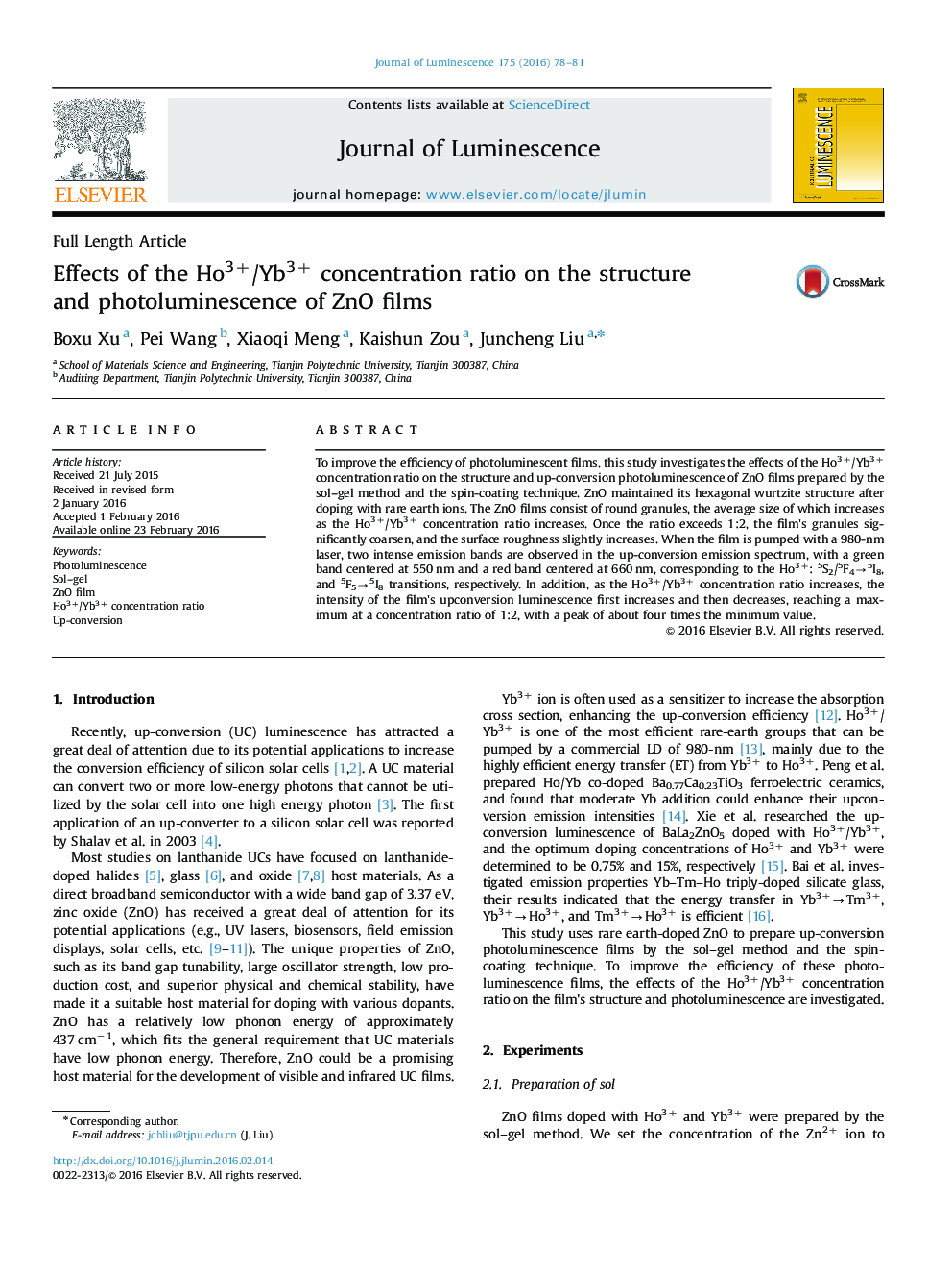| Article ID | Journal | Published Year | Pages | File Type |
|---|---|---|---|---|
| 5398192 | Journal of Luminescence | 2016 | 4 Pages |
Abstract
To improve the efficiency of photoluminescent films, this study investigates the effects of the Ho3+/Yb3+ concentration ratio on the structure and up-conversion photoluminescence of ZnO films prepared by the sol-gel method and the spin-coating technique. ZnO maintained its hexagonal wurtzite structure after doping with rare earth ions. The ZnO films consist of round granules, the average size of which increases as the Ho3+/Yb3+ concentration ratio increases. Once the ratio exceeds 1:2, the film׳s granules significantly coarsen, and the surface roughness slightly increases. When the film is pumped with a 980-nm laser, two intense emission bands are observed in the up-conversion emission spectrum, with a green band centered at 550 nm and a red band centered at 660 nm, corresponding to the Ho3+: 5S2/5F4â5I8, and 5F5â5I8 transitions, respectively. In addition, as the Ho3+/Yb3+ concentration ratio increases, the intensity of the film׳s upconversion luminescence first increases and then decreases, reaching a maximum at a concentration ratio of 1:2, with a peak of about four times the minimum value.
Related Topics
Physical Sciences and Engineering
Chemistry
Physical and Theoretical Chemistry
Authors
Boxu Xu, Pei Wang, Xiaoqi Meng, Kaishun Zou, Juncheng Liu,
